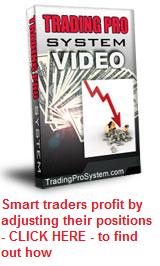Search Options Trading Mastery:
- Home
- Index Options
Index Options
Welcome to Index Options Main Page
Index options are one way of trading the major stock market indexes, only with greater leverage on your investment. The good thing about indexes is that they are generally much more stable than individual stocks, due to the fact that they are an 'average' of a basket of company stocks. Sometimes this basket is quite large, for example:
Well Known Stock Indexes
The S&P500 index is an average of the top 500 companies in the USA.
The Russell 2000 measures the performance of 2000 'small cap' stocks in the United States. It is a subset of the Russell 3000.
Other well known indexes include the Nasdaq 100 which averages the top 100 shares that trade on the Nasdaq exchange in the USA (the USA has a number of stock exchanges, including the New York and the American stock exchanges)
And not to forget the Dow Jones Industrial Average - a barometer for the overall performance of the top 30 'large cap' stocks in the USA and the one you most hear about on the news.
There are many other indexes, not only in the USA but in other countries such as Australia, whose major index is the "All Ordinaries". Or you will find the FTSE 100 in the UK, the Hang Seng in Hong Kong, the DAX in Germany and so on ... to name a few.
You can also find indexes which represent market segments, such as telecommunications, resources, utilities and the banking sectors.
But this is about index options and how you can use these to take advantage of price movements in the underlying. An individual company stock price might become unusually volatile after company news or earnings reports, but this is unlikely to affect the index the stock resides in, as a whole.
So index options are not the sort of instrument you would tend to trade if you're relying on price breakouts or gapping. On the contrary, they are ideal for option strategies based on more steady, more smooth and reliable price action.
The Best Way to Trade Index Options
You can of course, take options positions in the indexes themselves, but often the cost per option contract is so large that you need some decent capital to invest. But there is an alternative.
There are a number of Exchange Traded Funds (ETF's) which hold a portfolio of stocks which mimic the combination of stocks that make up a particular index. For example, in the USA you have the SPY. This is an ETF whose stock holdings are linked to the Standard and Poors (S&P) 500 index. You also have the DIA (sometimes called 'the diamonds') and this ETF holds only the 30 stock that make up the Dow Jones index. So a movement in the Dow is closely reflected in a similar price movement in the DIA.
You may have heard of the QQQ. This is actually an exchange traded fund (ETF) which only hold the stocks that make up the Nasdaq 100 index. The QQQ's are the most highly traded and liquid index options in the world.
There are other index based ETFs available as well and this is common for stock exchanges in most countries. The beauty of these ETF's that they mimic price movements in the index, but the options are much cheaper to purchase than those from the index itself. This is why they are so popular and as a consequence, are more liquid and have huge open interest numbers.
We have divided this section of Options Trading Mastery into further reading about this subject as outlined in the table of contents below.
Index Options Trading - Contents
1. What Is An Index Option
So what is an index option and how does it differ from other financial instruments? To answer this question, we need to set the background with a little bit of history.
2. QQQ Option Trading?
One QQQ option trading strategy involves using a straddle position
with near month expiration, along with 'gamma scalping' techniques to
keep it delta neutral until expiration date.
3. Spider Options Trading
Spider options trading is a safer alternative to trading company
stock options. Not only so, but it is one of the most highly traded
derivatives in the world so fills are easy.
4. OEX Option Trading
The beauty of OEX option trading is that, unlike stocks, it is
usually not subject to overnight price gapping, because the $OEX is an
average of a large number of stocks.
5. Index Options Calculator
To be effective, a good index options calculator needs to be able to
determine two important things:- cash settlement amount at expiration
and sensitivity to price movements in the index.
6. Index Option Trading
One of the primary benefits of index option trading, is that the
price action is more stable than it is for individual stocks. The ETFs
linked to some indexes make them easy to trade.
7. Index Options Advisory Service
This reliable index options advisory service will give you some
guidance about the future direction of the major stock market indices,
together with strategies for trading them.
8. Stock Index Option
The beauty of a stock index option contract is, that it allows you
to cash in on movements in the index without risking big bucks. It has
its own unique set of rules, but there is a way around these so that you
can trade indexes just like stocks
9. Trading Index Options
Trading index options is generally less volatile than trading
individual stocks on the market - and using the right option strategies,
the savvy trader can cash in on this.
10. Index Options Vs ETF Options
The real differences between Index Options vs ETF Options. A summary of why index options are great but ETF options on indexes are even better.
11. ETF Options
ETF Options when combined with the right options strategy, can be one of the best and safest ways to profit consistently from the financial markets. Many ETFs follow stock indexes.
12. Gold ETF Funds
Here's
a list of Gold ETF Funds That Trade on the US Markets. There are many
advantages of trading ETF's over individual stocks, commodities or
currencies
13. Index Call Options
What are Index Call options? We provide detailed explanations and examples on how and when to use the Index Long Call options trading strategy.
14. The VIX Indicator
The VIX Indicator And Its Role In The Stock Market - The VIX is a measure of the implied volatility level of a huge selection of options, The measure is taken from the S&P 500.
15. How to Use the VIX
Knowing how to use the VIX should be essential for all option traders whose portfolio of positions may be affected by general market sentiment.
***************** *****************
Return to Option Trading Homepage















New! Comments
Have your say about what you just read! Leave me a comment in the box below.